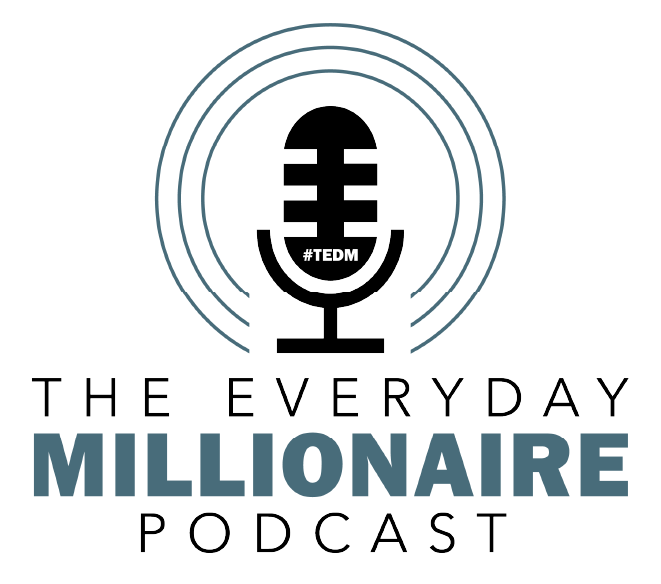April 5, 2022
Episode 138 – Jeff Booth – Leader & Visionary for a Thriving Future
“Most of humanity lives in hope, love for a better future. They might not see what I see, they might be super confused in the system breakdown, but most people are really kind… If you have a system that allows the best in people to thrive, humanity moves on that learning to a higher level. That’s what gives me hope.” – Jeff Booth
- Selected links and people mentioned from this episode:
- The Price of Tomorrow by Jeff Booth
- First Principles. As an example of what this concept is, here is an article by James Clear
- The Greatest Game by Jeff Booth”
- Catherine Austin Fitts
- Connect with REIN Canada
- REIN Canada
- CEO@reincanada.com
- REIN Channel
- [02:08] Patrick introduces his next TEDM guest, Jeff Booth.
- [03:45] Jeff and Patrick get their conversation underway as Jeff shares a snippet of what he does and explains why he doesn’t particularly like that question.
- [05:27] Jeff offers his thoughts on a society that is quick to label and divide, and the confusion that’s raised when our perceptions are challenged.
- [10:46] The Price of Tomorrow. The resistance to write this book was real for Jeff, until it became too compelling to ignore. He expands on how that realization unfolded and the dilemma with a system that at its base layer relies on theft.
- [16:07] Jeff discusses the progression of divisiveness that would occur with a collapse of the system as we know it. A system manipulated to its economic core, but nonetheless appearing real to many, he also talks about the lengths many would go to preserve their sense of “normal.”
- [19:17] A system that relies on money printing and stimulus without significant production or economic growth to compensate for it, eventually will break. The manipulation of money has a cost. There is a winner of it, but somebody else will lose. Jeff poses the question, when it is more broadly understood that the board game is rigged, how will the “losers” of the game respond?
- [21:20] First principles. Jeff encourages those of us who don’t understand first principles to educate ourselves there first, then apply them to break down complex problems to simplicity. Jeff uses a few examples to illustrate.
- [26:12] Patrick and Jeff take the iPhone example to explore the deflationary effect of technology.
- [28:50] Jeff directs us first to an article he wrote called The Greatest Game, which answers a couple of Patrick’s questions about why money printing isn’t just stopped, and interest rates increased, then Jeff walks through and explores the options available from our existing system.
- [36:40] In the context of fixing what’s broken, Jeff asserts the system can’t fix the problem. Jeff has spent 10 years researching trying to figure out what IS the best fix. Two opposing ideas are competing for attention right now: the system we live in which proposes the idea that perpetual inflation (theft) is required to operate a productive society, or a free market which can work when we remove the base layer of money manipulation, increased technology reduces prices, and human action can come together. Enter Bitcoin as a bridge.
- [40:30] Jeff uses historic examples such as the 1600s, when the church decided what the masses believed. Enter printing press which lowered access cost in 2 ways: 1) people could contribute to the global knowledge pool which contradicted some old school thinking, 2) not only did they contribute, they also began to error correct old knowledge. The advent of the internet produced a similar outcome. Jeff observes that this is also where we currently stand transitioning to a new idea, wading in the shallow end of Bitcoin. Jeff encourages us to investigate the idea behind Bitcoin rather than swimming in the nonsense and the noise of “get rich quick.”
- [46:36] In Jeff’s research, so far, the only system he has come across that could produce a totally different effect than history has presented, that is free from the fear and greed of centralized control, that is free from the few enriching themselves at the expense of the many, is Bitcoin.
- [48:03] Technology is a great equalizer. Jeff uses the game of Monopoly as a starting point to emphasize Patrick’s point that Bitcoin is a must in a diversified portfolio. The current system that is used by many around the world is of benefit to some but is of detriment to others, thereby dividing society. In another example Walmart vs. Amazon shows how technology then is a great equalizer because it can eliminate the control function of a few and opens up access to choose, which changes markets.
- [55:23] As old systems create a “friction cost” and make it harder for people to operate within it to maintain control of their system, the velocity of new technology only increases.
- [58:04] Is the new system building at the same rate that the old is collapsing? Jeff shares his outlook on how that’s occurring and the inevitability of the creeping control function in a state of manipulated money.
- [63:30] Because ideas that shake up the status quo and change the way society functions come from the outside, the outliers, Jeff believes the free market will win. It may simply take time to change the belief set of society, as the old guard fights to maintain their current place.
- [67:16] Jeff and Patrick discuss the robustness of Bitcoin, in the face of innumerable attempts to bring it down. As the attempts come from all angles including media rhetoric, the system of Bitcoin only gets stronger.
- [72:06] It is important to step outside of the old narrative and way of being, and in parallel be able to see the future and make choices from that. It can be hard. But why is that? We get attached to the emotion and although its not personal when the idea behind the emotion is challenged we want to fight back. The trick (and the work!) is to stay above the emotion.
- [75:35] Where does Jeff’s picture of optimism live and how does he contextualize the future? Short answer: he sees the best in people. Disagreement makes us stronger if it’s true disagreement to get us to a better place and what he sees is inherent cooperation within humanity.
- [78:00] Jeff shares a story from his book about a gentleman from Bosnia, which speaks to how quickly things can change in the us vs. them story that gets spun. The desire to protect ourselves can lead to hypocrisy in our actions where we don’t speak up for the truth and give our power away in the name of self-preservation.
- [81:25] Jeff shares why he does what he does.
- [83:15] Jeff offers his viewpoint of 5G, what it represents, and what technology really is.
- [87:09] Jeff’s gratitude. Least about money, most about relationships.







